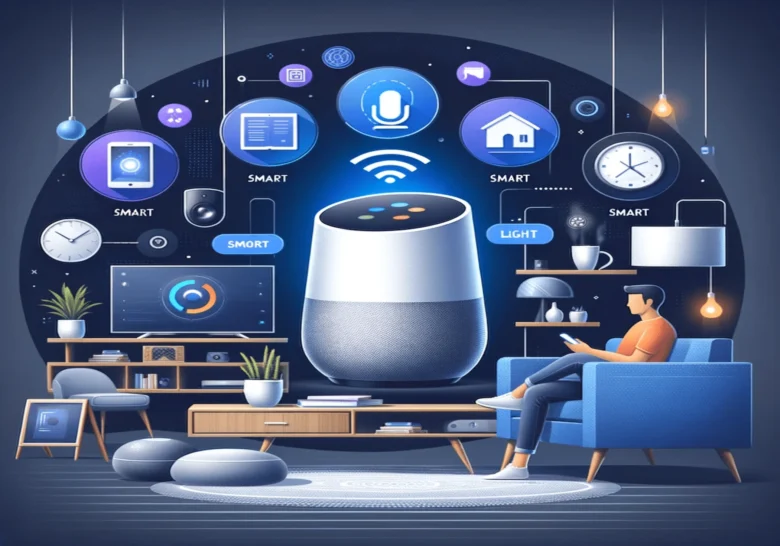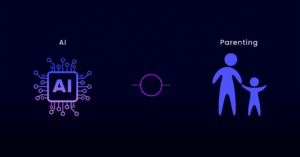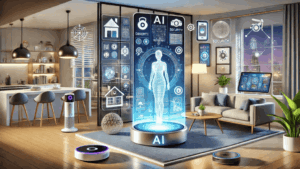Artificial intelligence may sound like a science fiction concept, but it’s an integral part of our daily lives. Artificial intelligence (AI) is present in every moment, from the moment you wake up and check your phone to the moment your personal music playlist starts playing as you fall asleep. Artificial intelligence is already a part of our daily lives, influencing the way we shop, travel, interact with each other, and even run our homes. And the best part? Many of us don’t realize how much AI they use every day. In this article, we explore how AI is quietly improving the convenience, efficiency, and personalization of our daily lives. Let’s take a look at how this invisible digital assistant is changing the game in subtle and dramatic ways.
AI in Smartphones
You may not realize it, but every time you unlock your phone with your face or set an alarm using a digital assistant, you’re using artificial intelligence. For example: Facial recognition technology can learn your features and improve speed and accuracy. Siri, Google Assistant, and Alexa use natural language processing and machine learning to interpret and respond to voice commands. Occasionally they also predict your needs based on your behavior. Would it be possible to perform automatic text correction and prediction? Artificial intelligence achieves this. It learns your typing style, frequently used words, and tone of voice to improve communication. AI can recognize faces, locations, and scenes in photos, making it easy to find that beach vacation from two years ago. Your smartphone is a pocket-sized AI powerhouse that can make life easier in smart ways.
AI in Online Shopping
Does it seem like your favorite online businesses know exactly what you want? It’s not magic, but artificial intelligence. Artificial intelligence is changing ecommerce by recommending products based on your browsing history and managing customer service with chatbots. It uses your past purchases, clicks, and even the time you spend searching for things to predict what you’ll want next. Through personalization, we save time and make shopping more fun. AI manages inventory, detects fraud, and decides whether to offer discounts based on your behavior. It’s about creating a smarter, more personalized shopping experience, not just about convenience. AI makes online shopping more fun by recommending shoes and reminding you of items in your cart.
Travel & Navigation AI
Thanks to AI, traveling is easier than ever. To find the fastest routes, Google Maps and Waze use artificial intelligence (AI) to monitor real-time traffic, roadworks, and user reports. These technologies can respond to real-time conditions to avoid delays and get you to your destination faster. When you book a ride with Uber or Lyft, AI matches you with the nearest driver, estimates your arrival time, and calculates your fare. AI helps airlines price tickets, optimize flight patterns, and save fuel. AI can also recommend destinations and routes and translate foreign languages in travel apps. It’s like having a travel planner and guide in your pocket, powered by advanced algorithms to make your journey easier.
Streaming and Entertainment AI
Think of your favorite streaming service: Netflix, Spotify, or YouTube. How does the device know what you want to watch or listen to next? This process is an example of artificial intelligence in action. These platforms evaluate your viewing or listening habits and recommend content using machine learning algorithms. That’s why the “Recommended for You” section usually works. AI recommends content, optimizes video quality, manages bandwidth, and personalizes ads. The gaming platform uses AI to generate smarter, more responsive virtual opponents and create dynamic stories tailored to your play style. AI has quietly made entertainment more immersive and personalized. It’s all about creating an intuitive digital experience that keeps you interested and happy, without any extra effort (not just algorithms).
AI in Smart Homes
Smart home devices are another trend driven by AI. Artificial intelligence is revolutionizing home automation, from thermostats that learn your daily routines to lights that turn on when you come in. Alexa, Google Home, and Apple HomeKit enable voice control of your coffee maker and security system. These systems adjust to your schedule, like when you want the lights dimmed and when you get home, to make your home cozier. AI can help save money and reduce your environmental impact by intelligently managing your electricity demand. Even your refrigerator can use AI to keep track of supplies and recommend recipes. With AI, you can make your home responsive, intuitive, and always ready to meet your needs.
Conclusion
Artificial intelligence is not only the engine of the future; it’s also quietly and efficiently powering your daily life. AI makes everything smoother, faster, and more personal, whether your smartphone predicts your next text, your car finds the best route home, or your streaming app recommends the perfect movie for Friday night. It’s astonishing how seamlessly AI has integrated into our daily lives, often without us even realizing it. These systems get smarter the more we use them, improving our daily lives in the process. As artificial intelligence develops, it will become more integrated into our lives, bringing convenience and innovation. When your digital assistant reminds you of an appointment, or your music seems to read your mind, that’s the subtle magic of artificial intelligence.
FAQs
1. How do you use AI on your phone every day?
Facial recognition, virtual assistants, predictive text, and image organization are all applications of AI in smartphones. They allow you to customize and simplify actions, improving your phone and easier to use over time.
2. Can AI know what I want to buy?
Yes, AI in ecommerce improves your online shopping experience by paying attention to what you’re looking at, what you’re buying, and even the time you spend on each item to find something you might like.
3. What role does AI play in apps that help you find your way?
AI looks at real-time information, such as traffic, road closures, and user input, to find the best routes, predict when people are coming, and offer faster routes.
4. How does AI make services like Netflix and Spotify better?
AI observes what you watch or listen to and recommends content you might like. The algorithm generates personalized entertainment content that changes based on your preferences.
5. Are smart home devices intelligent?
Yes, smart home devices use artificial intelligence to learn your habits, automatically change settings, and let you control them with your voice. This feature makes your home smart and efficient.




